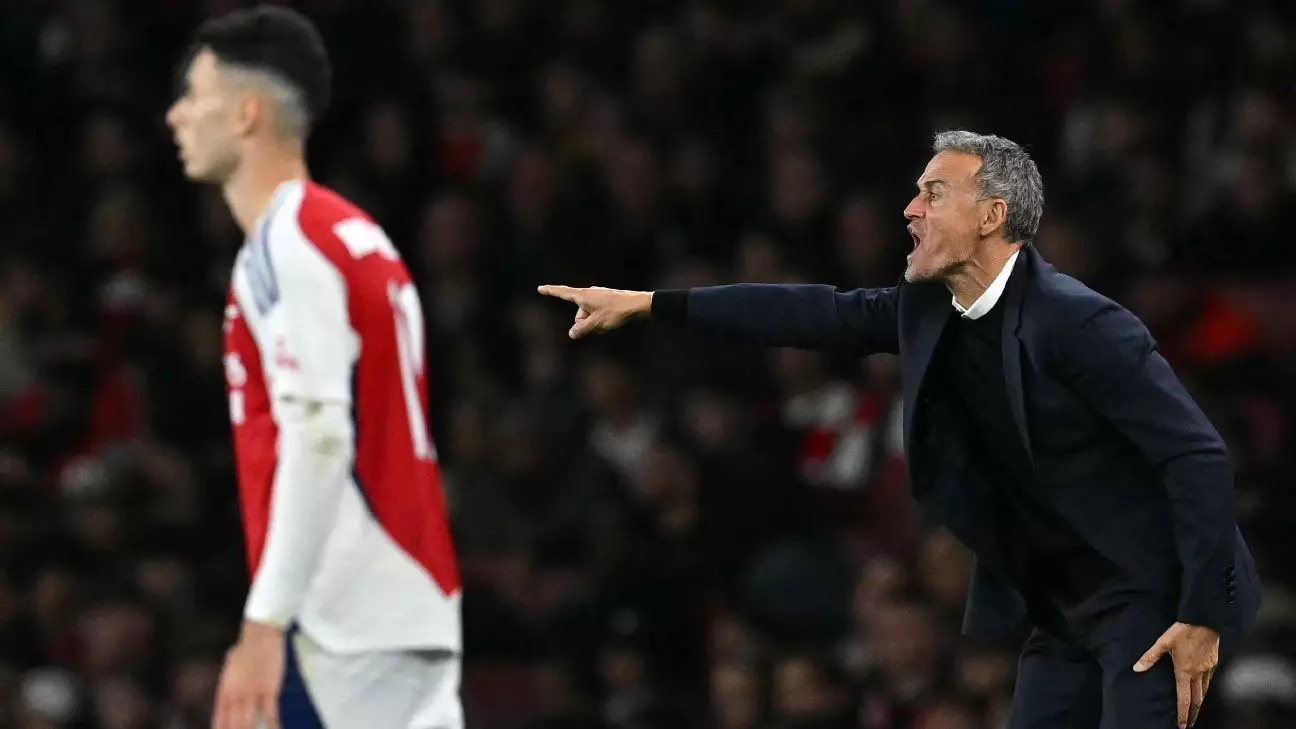Paris Saint-Germain (PSG) has found itself at a precipice following their recent 2-0 defeat to Arsenal in the Champions League, a match that has exposed glaring vulnerabilities within the team. Coach Luis Enrique’s post-match reflections highlight the extensive challenges the French champions face as they strive to regain their standing as a dominant force in European football.
PSG’s loss was not just a setback in the group stage; it was a clear indication of the club’s transitional phase. The absence of superstar Kylian Mbappé, who departed for Real Madrid, has left a void in both scoring power and team morale. This defeat was compounded by their lack of chemistry on the pitch; players seemed to struggle with asserting themselves against a more physical Arsenal team. The fact that PSG only hit the woodwork twice, despite several attacking opportunities, illustrates a disconnect between execution and intent. The team’s performance, marked by a lack of intensity and poor anticipation, raises concerns about their readiness to compete at the highest level.
Luis Enrique’s analysis of his team’s performance is revealing. He noted that the squad fell short in terms of aggression and composure during the game. The Spaniard’s statement about not winning any duels highlights a fundamental issue in their tactical setup. For a team that has enjoyed significant success in Ligue 1, the stark contrast in competitive spirit showcased against Arsenal raises critical questions about their ability to adapt to more challenging encounters. Enrique’s admission that he didn’t know how long it would take to return PSG to European prominence further emphasizes the uncertainties surrounding the current squad dynamics and tactical strategies.
The decision to exclude forward Ousmane Dembélé from the match for disciplinary reasons casts a shadow over PSG’s leadership and decision-making processes. Such actions can undermine team morale andsend mixed messages regarding accountability. Enrique’s accountability is commendable; however, it also signals potential fractures in the unit’s cohesion and collective goal-setting. It raises a need for a thorough internal assessment to align ambitions with discipline and performance on the pitch.
Despite currently sitting atop Ligue 1 and having secured a win in their opening Champions League match, the encounter with Arsenal was a stark reminder of what is required at the elite level of European football. Enrique’s comment regarding the challenge presented by Arsenal as a “big step up” rings true; his acknowledgment of a competitive divide can serve as a pivotal moment for reflection and recalibration. The journey toward reclaiming their status as a formidable European competitor is fraught with complexities, yet coherent strategies, robust leadership, and a collective fighting spirit can pave the way toward success.
PSG’s recent challenges encapsulate not just the loss of a star player but a broader existential crisis within the club. For Luis Enrique, the focus must now shift towards rebuilding the team’s core identity and competitive edge, equipped with the lessons learned against formidable opponents such as Arsenal. The path to European glory may be long, but with commitment and strategic clarity, PSG can navigate through this transitional phase toward a promising future.

Leave a Reply